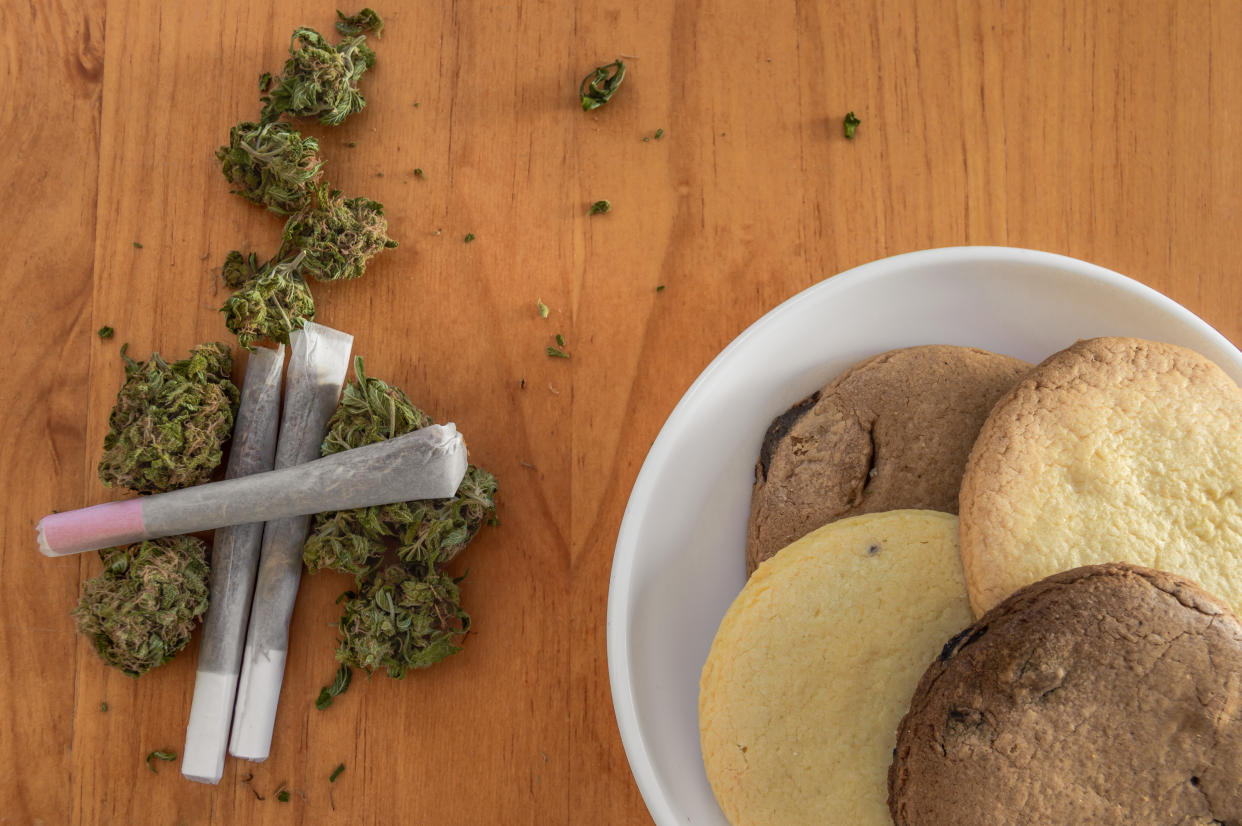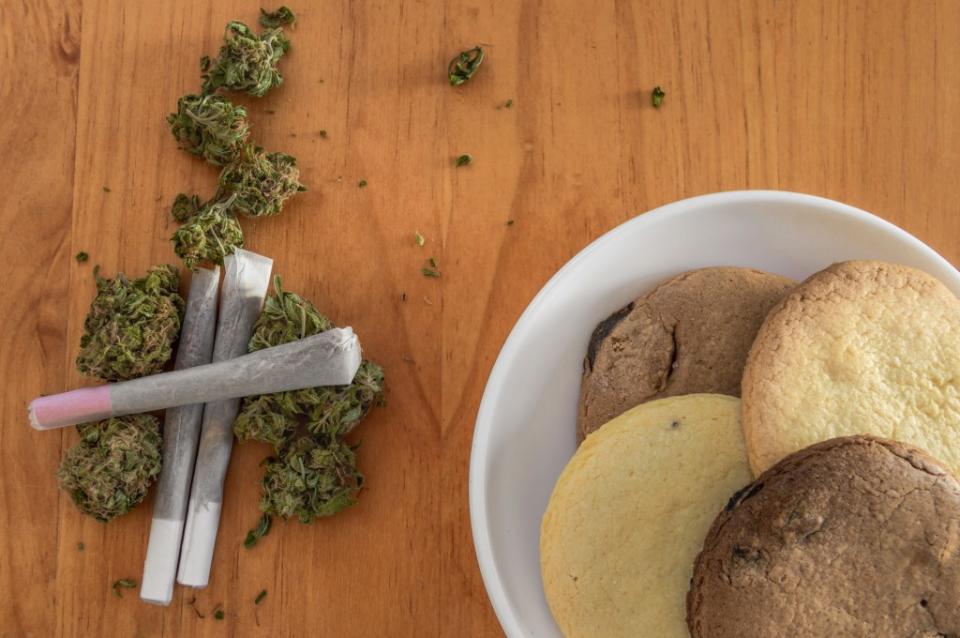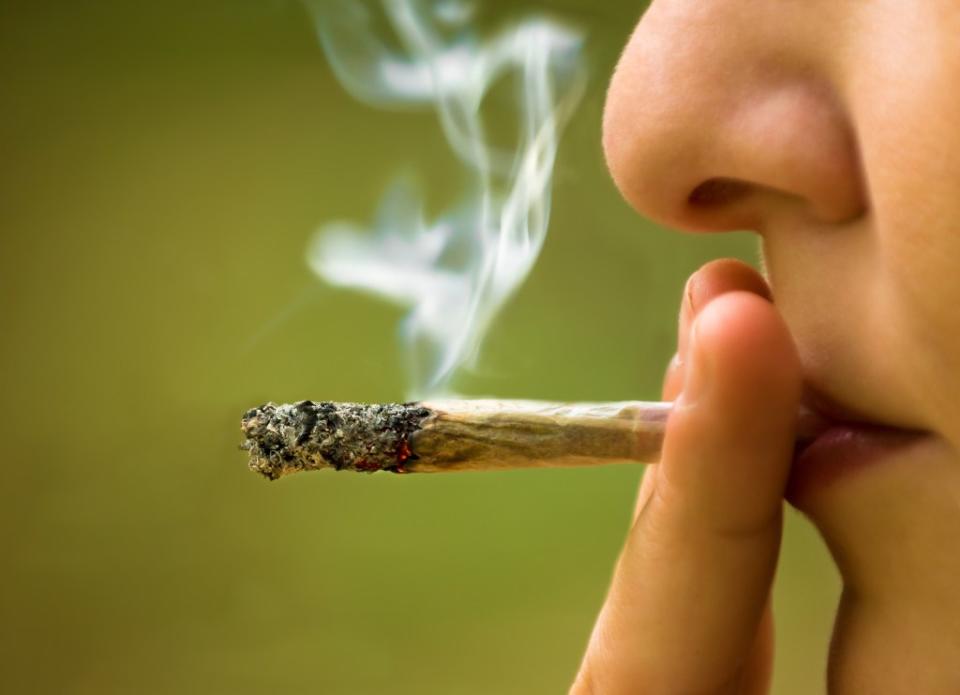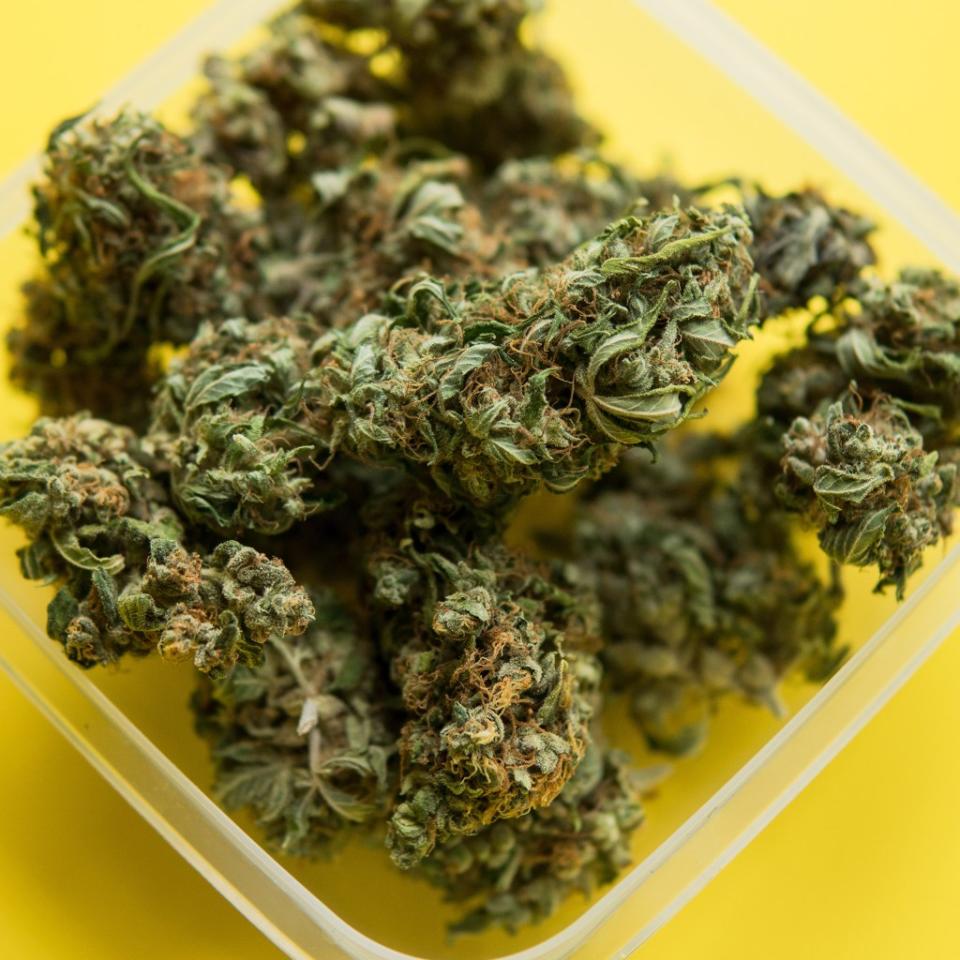Why smoking pot gives you the munchies, according to cannabis research

The munchies are real — even science says so.
The concept of getting the munchies after indulging in cannabis has long been a thing, but people often wonder why it is that they get so hungry and feel the need to devour whatever food is in front of them after smoking weed.
Luckily for inquiring minds, scientists have been studying marijuana’s effects on human hunger for decades.
A 1975 study published in the journal Behavioral Biology found that “no unequivocal explanations for the phenomenon in humans or animals are readily acceptable and a general consideration of the problem raises more questions than answers.”
But a paper published in the journal Nature Neuroscience in 2015 got a little closer to figuring it out.
Researchers at Yale University School of Medicine discovered that cannabis tricks the brain into thinking we are starving — even if we’re full.
“It’s like pressing a car’s brakes and accelerating instead,” lead researcher Tamas Horvath, a neurobiologist at Yale University School of Medicine, said in a press release at the time.
“We were surprised to find that the neurons we thought were responsible for shutting down eating, were suddenly being activated and promoting hunger, even when you are full. It fools the brain’s central feeding system.”

Delta-9-tetrahydrocannabinol (THC) and cannabidiol (CBD) are the two main cannabinoids in marijuana, the Alcohol and Drug Foundation notes. The most common of the two is THC, the chemical responsible for the psychoactive effects of cannabis.
And the brain actually produces its own cannabinoids — lipids that help control appetite, mood, memory and pain reception.
THC latches on to the cannabinoid receptors in our brain, mimicking the chemicals.

Horvath and his team discovered that THC flipped a switch in the mouse’s hypothalamus, with a cluster of neurons, called the POMC neurons, telling the hypothalamus you’re hungry rather than producing the chemical that tells you you’re full.
Essentially, it comes down to basic survival.
Since the POMC neurons are in the hypothalamus, and the hypothalamus is associated with base instincts such as alertness, feeding and sexual arousal, it drives the person to eat because they feel they really need to.
“For anyone who’s experienced it — you realize that’s exactly what’s happening,” Horvath told NPR in 2015, laughing. “You just can’t stop, no matter how much you put in your mouth.”

Cannabis also alters cannabinoid receptors in the olfactory bulb, which makes food smell and taste more intense and impacts how much food we consume.
“Even if you just had dinner and you smoke the pot, all of a sudden these neurons that told you to stop eating become the drivers of hunger,” Horvath told NPR.
Horvath said more research is still needed since the 2015 study was tested on mice rather than humans — though new studies are constantly coming out.
A set of animal studies at Washington State University found that cannabis activated a set of cells in the hypothalamus when the rodents anticipated and consumed palatable food that was not activated in mice not exposed to cannabis.
The findings, published late December 2023 in the journal Scientific Reports, could have positive impacts on refined therapeutics to treat appetite disorders, such as anorexia or loss of appetite in people undergoing chemotherapy.

